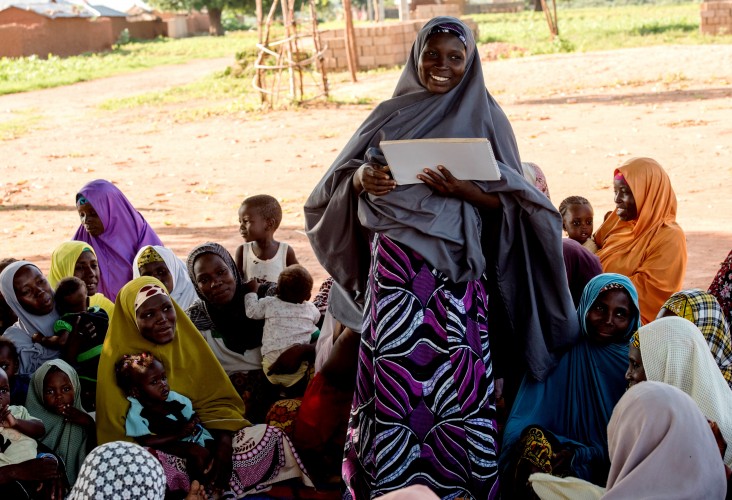Press Release Shim
Speeches Shim

Feed the Future Project Improves Agriculture, Nutrition and Incomes
For Immediate Release
Over the past five years, the Feed the Future Nigeria Livelihoods project helped pull some of the most vulnerable families in Nigeria out of poverty by taking an integrated approach to improving agricultural production, income generation, nutrition, and sanitation, officials affirmed at a June 20 closing ceremony for the activity.
Administered by the USAID, the $22.6 million activity implemented by Catholic Relief Services began in 2013, initially worked with 42,000 poor households in the Federal Capital Territory (FCT), Kebbi and Sokoto states to help grow their agricultural production, diversify incomes, and improve nutrition.
It also provided livelihoods planning skills, adult literacy and numeracy instruction, and cash transfers for the most vulnerable households. In 2017, activities expanded to Adamawa, Borno, and Yobe states, reaching 10,000 more households.
“This project took a holistic approach to agriculture, to livelihoods, and to social development,” USAID Mission Director, Stephen M. Haykin said at the closing. “It addressed the needs of the extreme poor by improving incomes and reducing vulnerabilities, and in this way, serves as a model for efforts to build resilience in rural Nigeria.”
After the introduction of new technology to improve agricultural production and access to input markets such as quality seeds for smallholder farmers, crop yields doubled for more than 33,000 farmers. Further gains were realized through reduction of post-harvest losses.
The activity also engaged poor households in the rural economy by providing business skills and financial literacy support, vocational trainings and lending schemes; and safe spaces for adolescent girls.
Additionally, more than 2,000 community workers were trained to deliver over 1.5 million counseling and group sessions on nutrition that led to a 22 percent drop in stunting, 10 percent drop in wasting, and 53 percent increase in exclusive breastfeeding rates in targeted locations. A cash transfer component alone helped lift 2,740 households out of poverty.
State and local governments have shown positive support towards sustaining the gains from the program. Sokoto State government and the Bwari Area Council in the FCT, especially, committed 15 percent counterpart funding to cash transfer programs. Sokoto also developed programs to sustain and scale up selected activity components.
“Almost all of the programs implemented under this intervention aligned with our policies and programs toward improving the lives of the vulnerable groups in Sokoto State,” Executive Governor Aminu Waziri Tambuwal said. “An extension of some models of approaches of the project, which we found adaptable, our ministries, departments, and agencies have collaborated with the project to replicate them.”

Comment
Make a general inquiry or suggest an improvement.